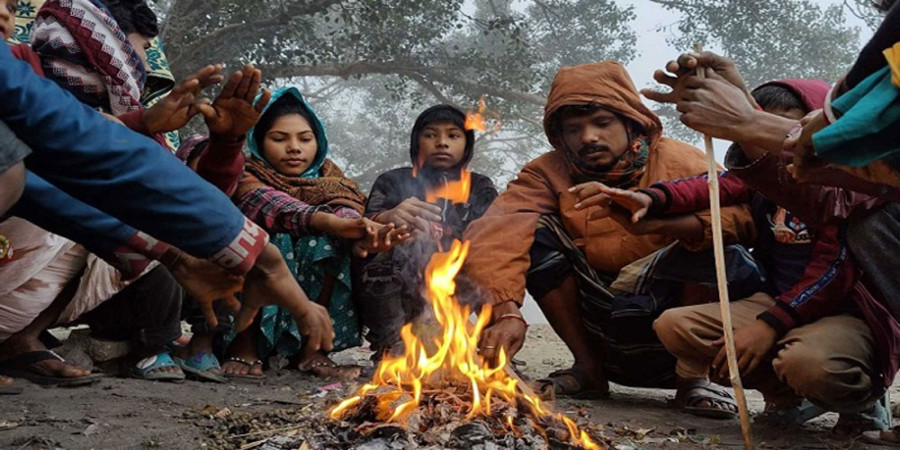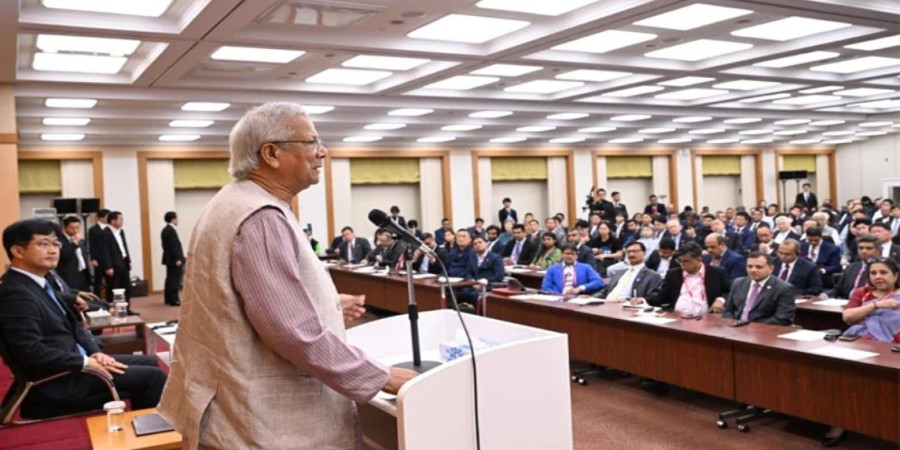
ছবি: File photo
As winter arrives in Bangladesh, the cold has taken an unrelenting grip on the nation, disrupting daily life and leaving many struggling to adapt. Before the traditional onset of winter in the Bengali month of Poush, people across the country are already feeling the bite of bone-chilling cold. The intensity of the weather, coupled with freezing winds from the north, has forced many to seek warmth by lighting straw and wood fires, particularly in rural areas.
On Thursday, Chuadanga recorded a temperature of 10.2 degrees Celsius, marking one of the coldest days so far this season. Hospitals and pediatric clinics have reported a surge in patients suffering from cold-related illnesses, highlighting the broader impact on public health. The dense fog has further compounded difficulties, causing delays in transportation and affecting ferry services along the major river routes.
Dense Fog and Transportation Delays
In the early hours of Thursday, dense fog enveloped large parts of the country, including the capital, Dhaka. Visibility remained low throughout the morning, with the haze lifting only partially by midday. However, by evening, the fog returned, blanketing the city once again. This marked the first instance of such thick fog in the capital this season, with temperatures recorded at 14.8 degrees Celsius. Weather forecaster Md. Omar Farooq noted that foggy conditions are likely to persist for several more days.
The biting cold has also affected transportation. The Daulatdia-Paturia ferry route, a key connection over the Padma River, faced disruptions. Ferry services, which were halted on Wednesday night due to heavy fog, resumed only after a seven-hour delay on Thursday morning. The interruption left two ferries stranded mid-river and caused long lines of trucks to build up along highways leading to the ferry terminals.
Rural Struggles Intensify
In the northern district of Kurigram, temperatures rose slightly to 14.2 degrees Celsius on Thursday morning from 12 degrees the previous day. However, the cold winds have left daily wage laborers and other vulnerable populations struggling. Overcast skies have persisted for three consecutive days, depriving people of sunlight and intensifying the chill. Local government representatives have reported severe hardships, particularly for residents of remote char areas, who remain without adequate winter clothing or government aid.
In Panchagarh, the skies have remained cloudy throughout Wednesday and Thursday, with daytime temperatures continuing to drop. Even during daylight hours, people were seen wearing thick winter clothing. The Tetulia Weather Observation Center recorded a temperature of 12.6 degrees Celsius on Thursday morning. Markets selling winter clothes have seen increased foot traffic, with people rushing to purchase warm garments. However, many in rural areas have resorted to lighting fires with straw and twigs to stay warm.
Impact on Tea Gardens and Hilly Areas
In the tea garden areas of Chunati, Habiganj, and Kamalganj, Moulvibazar, the cold has brought additional challenges. These regions, already known for their high altitude and forested landscapes, have experienced even lower temperatures. In Chunati, temperatures dropped to 12.9 degrees Celsius on Thursday morning. Many residents are staying indoors to avoid exposure, while healthcare facilities have reported a rise in cold-related illnesses among all age groups.
In Kamalganj, dense fog combined with icy winds has created harsh living conditions for tea garden workers and other residents. Shrimangal recorded its lowest temperature of 11.8 degrees Celsius on Thursday morning, a stark reminder of the intensifying winter conditions.
Coastal and Riverine Challenges
The cold wave has not spared Bangladesh’s coastal and riverine areas. In Barisal’s Agoiljhara, residents reported an unbearable chill beginning Wednesday night, worsened by icy winds from the north. Many have avoided venturing outdoors unless absolutely necessary. Similar conditions were observed in Chandpur’s Hajiganj, where daily activities have come to a halt due to the cold and heavy fog.
Economic and Health Impacts
The prolonged cold spell has disrupted economic activities, particularly for day laborers and those working in agriculture. In many areas, outdoor work has slowed down significantly. Hospitals are also seeing an influx of patients suffering from respiratory infections, hypothermia, and other cold-related ailments. In Chunati’s health complex, officials noted an increase in visits from people of all ages seeking treatment for flu, asthma, and bronchitis.
Urgent Need for Relief Efforts
Despite the severe weather, many affected communities have yet to receive government or non-governmental winter relief. Local leaders in Kurigram and Barisal reported the absence of distributed warm clothing or blankets, leaving the most vulnerable populations at greater risk. These delays have heightened calls for immediate relief measures, particularly in areas where temperatures are at their lowest.
The Path Ahead
Weather forecasts suggest that the current conditions will persist, with dense fog and cold winds likely to dominate the coming days. As the cold intensifies, the importance of proactive measures to support affected communities becomes increasingly evident. The government and aid organizations face mounting pressure to deliver relief to the hardest-hit regions swiftly.
In the face of this harsh winter, Bangladesh’s resilience will once again be tested. While the nation has weathered such challenges before, this season’s early onset of severe cold underscores the need for preparedness and rapid response to ensure the well-being of its people.
repoter






